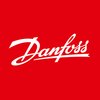Filter interviews by
Senvion Interview Questions and Answers
22 Interview questions
Inox wind turbine generators often face bearing failures due to various operational and environmental factors.
Lubrication Issues: Insufficient or contaminated lubrication can lead to increased friction and wear, causing premature bearing failure.
Misalignment: Improper alignment of the generator shaft can create uneven loads on the bearings, leading to damage over time.
Vibration: Excessive vibration from the turbin...
I am a passionate lead engineer with over 8 years of experience in software development and team leadership.
Background in computer science with a focus on software engineering.
Led a team of 10 engineers on a successful project that improved system efficiency by 30%.
Skilled in Agile methodologies, having implemented Scrum practices in previous roles.
Strong problem-solving abilities, demonstrated by resolving critic...
dv/dt and du/dt filters manage voltage and current changes in electrical systems, ensuring stability and performance.
dv/dt filter limits the rate of voltage change to protect components from voltage spikes.
Example: Used in motor drives to prevent insulation breakdown.
du/dt filter limits the rate of current change, reducing electromagnetic interference.
Example: Commonly used in power electronics to enhance system r...
Pseudo elements are used in CSS to style specific parts of an element.
Pseudo elements are denoted by double colons (::) in CSS.
They allow styling of specific parts of an element, like the first letter or line.
Common pseudo elements include ::before, ::after, ::first-line, and ::first-letter.
The box model is a fundamental concept in CSS that defines the layout of elements on a webpage.
The box model consists of content, padding, border, and margin.
Content: the actual content of the element, such as text or images.
Padding: space between the content and the border.
Border: a line that goes around the padding and content.
Margin: space outside the border, separating the element from other elements.
ContextAPI is a built-in feature in React for managing global state, while Redux is a separate library for state management in React applications.
ContextAPI is built into React, while Redux is a separate library.
ContextAPI is primarily used for managing global state in a React application.
Redux provides a centralized store for state management and follows a unidirectional data flow.
ContextAPI is simpler to use for...
Normal functions are defined using the function keyword, while arrow functions are defined using the => syntax.
Normal functions are hoisted, while arrow functions are not hoisted.
Arrow functions do not have their own 'this' keyword, they inherit it from the parent scope.
Arrow functions do not have their own 'arguments' object.
Arrow functions are more concise and have implicit return.
Arrow functions cannot be used ...
Higher order components are functions that take a component and return a new component with additional functionality.
Higher order components enhance the functionality of existing components
They can be used for code reusability and separation of concerns
Examples include withRouter from React Router and connect from React Redux
Class components are ES6 classes that extend from React.Component and have state and lifecycle methods, while functional components are simple functions that take props as input and return JSX.
Class components are defined using ES6 classes and have a render method.
Functional components are defined as simple functions that take props as input and return JSX.
Class components can have state and lifecycle methods like...
Lifecycle methods are methods that are automatically called at certain points in the lifecycle of a component in React.
Lifecycle methods include componentDidMount, componentDidUpdate, componentWillUnmount, etc.
These methods allow developers to perform actions at specific points in a component's lifecycle, such as fetching data after the component has been rendered.
They are used to manage side effects, perform clea...
Senvion Interview Experiences
19 interviews found
(2 Questions)
- Q1. WTG In Reduction
- Ans.
WTG In Reduction refers to Wind Turbine Generator efficiency improvements through various engineering techniques.
Aerodynamic Optimization: Enhancing blade design to improve lift-to-drag ratio, resulting in better energy capture.
Control Systems: Implementing advanced control algorithms to optimize turbine performance under varying wind conditions.
Gearbox Improvements: Using high-efficiency gearboxes to reduce mechanical...
- Q2. Inox wtg issue major component
- Ans.
Inox wind turbine generators (WTGs) face issues primarily related to corrosion, mechanical wear, and electrical failures.
Corrosion Resistance: Inox WTGs are designed with stainless steel to resist corrosion, but environmental factors can still lead to degradation over time.
Mechanical Wear: Components like bearings and gearboxes may experience wear due to continuous operation, necessitating regular maintenance and repla...
(3 Questions)
- Q1. Inox wtg most failure generator bearing
- Ans.
Inox wind turbine generators often face bearing failures due to various operational and environmental factors.
Lubrication Issues: Insufficient or contaminated lubrication can lead to increased friction and wear, causing premature bearing failure.
Misalignment: Improper alignment of the generator shaft can create uneven loads on the bearings, leading to damage over time.
Vibration: Excessive vibration from the turbine or ...
- Q2. I am interested over change me and
- Q3. Best company insanewin
Interview Preparation Tips
32 M.G
Electrical all component replacement safety propose receptive awareness Training Certificate in provide by company
I applied via Recruitment Consulltant and was interviewed in Aug 2024. There were 2 interview rounds.
(3 Questions)
- Q1. PID controller working
- Ans.
A PID controller is a type of feedback control system that calculates an error value as the difference between a desired setpoint and a measured process variable.
PID stands for Proportional-Integral-Derivative, which are the three terms used to describe the controller's actions.
The proportional term responds to the current error value.
The integral term responds to the accumulation of past errors.
The derivative term res...
- Q2. Previous work details
- Q3. Power curve of WECS
- Ans.
The power curve of a Wind Energy Conversion System (WECS) shows the relationship between wind speed and power output.
The power curve typically shows the rated power output at a certain wind speed, as well as the cut-in and cut-out speeds.
It is important for optimizing the performance of the WECS and determining the best locations for installation.
The shape of the power curve can vary depending on the type of wind turbi...
(2 Questions)
- Q1. Introduction urself
- Ans.
I am a passionate lead engineer with over 8 years of experience in software development and team leadership.
Background in computer science with a focus on software engineering.
Led a team of 10 engineers on a successful project that improved system efficiency by 30%.
Skilled in Agile methodologies, having implemented Scrum practices in previous roles.
Strong problem-solving abilities, demonstrated by resolving critical is...
- Q2. Background and skills
Interview Preparation Tips
- MBD
I applied via Recruitment Consulltant and was interviewed in Mar 2024. There were 2 interview rounds.
(2 Questions)
- Q1. Roles and responsibilities of current and past organization?
- Ans.
Responsible for ensuring project quality through planning, monitoring, and implementing quality control measures.
Developing and implementing project quality plans
Conducting quality audits and inspections
Identifying and resolving quality issues
Training team members on quality standards and procedures
Collaborating with stakeholders to ensure quality requirements are met
- Q2. Self Introduction
(2 Questions)
- Q1. Self Introduction
- Q2. Roles and responsibilities of current and past organization ?
- Ans.
Responsible for ensuring project quality through planning, monitoring, and implementing quality control measures.
Developing and implementing project quality plans
Conducting quality audits and inspections
Identifying and resolving quality issues
Training team members on quality standards
Collaborating with stakeholders to ensure quality objectives are met
Interview Preparation Tips
I applied via Naukri.com and was interviewed in Apr 2024. There were 2 interview rounds.
(2 Questions)
- Q1. Basics of PLCs, SCADA, Sensor Types, Networking, Programming.
- Q2. Reason for Change, why you want this position, good & bad qualities, experiences with situations where you had shown problem solving & leadership skills.
(1 Question)
- Q1. Problem statements with PLC coding, C Coding, Aptitude Questions, Sensor Working Principle related to wind turbines. How WTG works
Interview Preparation Tips
I appeared for an interview in Mar 2024.
(2 Questions)
- Q1. Wind blade technician finishing
- Q2. Wind blade technician mould
Wind blade technician finishing repair
Interview Preparation Tips
I applied via Naukri.com and was interviewed in Mar 2024. There was 1 interview round.
(2 Questions)
- Q1. Basic electrical
- Q2. Machines & Motors
I applied via Naukri.com and was interviewed before Jun 2023. There were 2 interview rounds.
(6 Questions)
- Q1. Tell me about yourself (work experiences, skills you have, and brief about your family background)
- Q2. What are the factor which affecting the performance of wind turbine?
- Q3. What is wake and how is it affecting performance of turbine?
- Q4. How many OEMs work experience you have?
- Q5. As per your point of view, which OEM turbine are best performing in terms of Power curve?
- Q6. Do you know Python for data analysis and advance excel?
(4 Questions)
- Q1. Tell me about yourself?
- Ans.
I am a passionate engineer with a strong background in R programming, data analysis, and team leadership.
Over 5 years of experience in R programming, focusing on data visualization and statistical analysis.
Led a team of 4 engineers in a project that improved data processing speed by 30%.
Developed an R package that streamlined data cleaning processes, reducing time spent on data preparation.
Collaborated with cross-funct...
- Q2. Why do you want to leave your current organization?
- Q3. Where are you seeing yourself at senvion after 5 years?
- Q4. What is your salary expectation with justification?
Skills evaluated in this interview
I applied via Naukri.com and was interviewed before Jun 2023. There were 3 interview rounds.
(3 Questions)
- Q1. DFIG Generator?
- Q2. Dv/dt and du/dt filter?
- Ans.
dv/dt and du/dt filters manage voltage and current changes in electrical systems, ensuring stability and performance.
dv/dt filter limits the rate of voltage change to protect components from voltage spikes.
Example: Used in motor drives to prevent insulation breakdown.
du/dt filter limits the rate of current change, reducing electromagnetic interference.
Example: Commonly used in power electronics to enhance system reliab...
- Q3. Gearbox oil Grade ?
- Ans.
The gearbox oil grade is typically specified by the manufacturer based on the requirements of the gearbox.
Gearbox oil grade is determined by the viscosity and additives needed for proper lubrication.
Common gearbox oil grades include SAE 80, SAE 90, and SAE 140.
Consult the manufacturer's specifications or maintenance manual for the recommended gearbox oil grade.
Pitch convertor system,
(1 Question)
- Q1. Salary discussion
Interview Preparation Tips
I applied via Approached by Company and was interviewed before Dec 2023. There was 1 interview round.
(2 Questions)
- Q1. Self introduction
- Q2. Exp & learning’s & confidence and behavioural,
I applied via Approached by Company and was interviewed in Oct 2023. There was 1 interview round.
(1 Question)
- Q1. Overall Professional Background
Top trending discussions






Senvion Interview FAQs
The duration of Senvion interview process can vary, but typically it takes about less than 2 weeks to complete.
Tell us how to improve this page.
Senvion Interviews By Designations
- Senvion Electrical Engineer Interview Questions
- Senvion Mechanical Engineer Interview Questions
- Senvion Data Scientist Interview Questions
- Senvion Senior Engineer Interview Questions
- Senvion Assistant Manager Interview Questions
- Senvion Quality Engineer Interview Questions
- Senvion Assistant Lead Engineer Interview Questions
- Senvion Manager SCM Interview Questions
- Show more
Interview Questions for Popular Designations
Overall Interview Experience Rating
based on 23 interview experiences
Difficulty level
Duration
Interview Questions from Similar Companies
Senvion Reviews and Ratings
based on 257 reviews
Rating in categories
|
Engineer
53
salaries
| ₹3.5 L/yr - ₹8.2 L/yr |
|
Senior Engineer
50
salaries
| ₹5 L/yr - ₹11.5 L/yr |
|
Assistant Manager
30
salaries
| ₹5 L/yr - ₹13.2 L/yr |
|
Deputy Manager
30
salaries
| ₹7.2 L/yr - ₹17.3 L/yr |
|
Junior Engineer
27
salaries
| ₹2.2 L/yr - ₹4.5 L/yr |

Dhoot Transmission

LM Wind Power

SHV Energy

Danfoss Power Solutions
- Home >
- Interviews >
- Senvion Interview Questions













